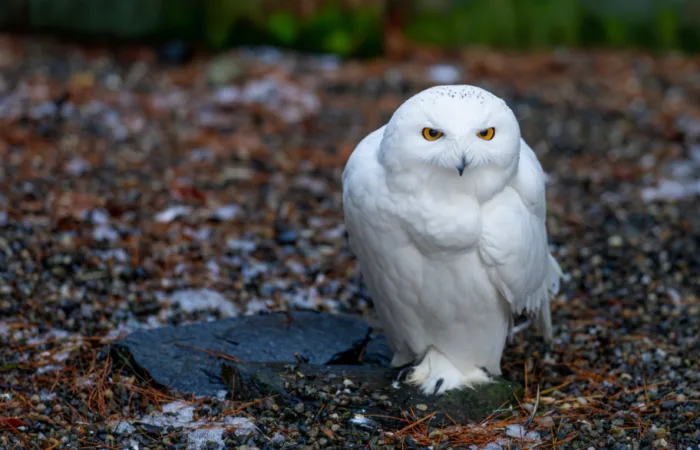
Harry Potter parks to stop using live owls in performances
Warner Bros. owns several parks in The U.S. and Asia.
Warner Bros. will no longer use live owls at Wizarding World of Harry Potter Theme parks, according to the Protego Foundation, a fan-based, registered non-profit that first formed in 2015 to "end the abuse of animals in the Muggle world."
Forbes reports Warner Bros. confirmed to Protego president and founder Tylor Starr that the park's shows will no longer use live owls. Warner owns Harry Potter parks in Orlando, Hollywood, Osaka, and is set to open a park in Beijing in May.
“We learn in the Harry Potter series that owls are sensitive and remarkably intelligent birds who should be treated with kindness and respect," Starr said in a statement.
"They shouldn’t be subjected to loud music, large crowds, and flashing lights."
In 2016, London organizer of a Harry Potter play stopped using live owls when an owl escaped from the auditorium on opening day.
OWLS AREN'T PETS
Owls are a big part of the Harry Potter series, prompting some fans to adopt them as pets only to abandon them when the series ended.
Harry Potter author J.K. Rowling condemned the practice in 2012 and then again in 2017.
"If anybody has been influenced by my books to think an owl would be happiest shut in a small cage and kept in a house, I would like to take this opportunity to say as forcefully as I can, 'you are wrong,’" Rowling said in 2012.
"The owls in Harry Potter books were never intended to portray the true behaviour or preference of real owls. If your owl-mania seeks concrete expression, why not sponsor an owl at a bird sanctuary, where you can visit and know that you have secured him or her a happy, healthy life."
Owls are natural predators and wild animals that require a lot of care, a specialized diet, and can be "noisy, smelly, and dirty," the Suffolk Owl Sanctuary in the U.K. says on its website.
"And, in our opinion, to be kept properly, they need a large, purpose-built aviary, which can be expensive to build and maintain," the sanctuary adds.
It is illegal to buy, sell or trade owls in Canada.
"In fact, without the proper permits, it is illegal to be in possession of any of our birds of prey (alive or dead)," The Owl Foundation says on its website.
"This includes feathers. Keeping owls requires not only permits, but a sound knowledge of owl requirements, species, and Strigiforme life history."
In 1918, Canada and the U.S. signed the Migratory Bird Treaty Act. Individuals caught in possession of birds of prey can face penalties including a fine of up to $15,000 and/or up-to six months in prison.
Thumbnail Courtesy: Pexels/Skyler Ewing










